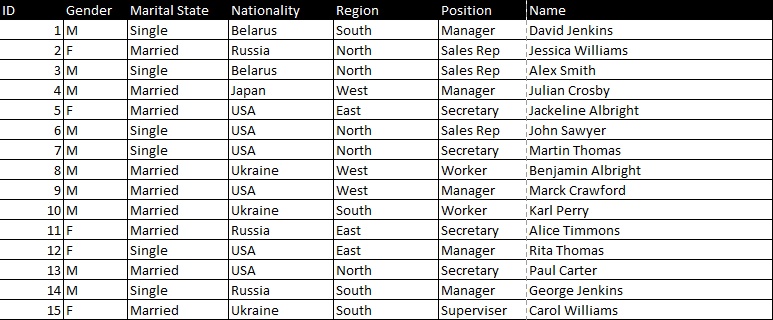unlike to normal situation, which I write SQL Statement for pre-assumed result, I am in a situation that I need the SQL for predefined result. for example, suppose that you have the following table for employees:
the attributed of Gender, Marital State, Nationality, Region, Position are unique for each employee
and now I need a SQL to give me result of Alice Timmonsm, Jackeline Albright, Rita Thomas.. I can write a SQL like
Select Name from Employees where
Gender ='F' and and Position in ('Secretary', 'Manager')
but the SQL statement
Select Name from Employees where Region = 'East'
is Simpler and gives the same result
another Example: I want the simplest SQL statement to give the names: Carol Williams, Karl Perry, Benjamin Albright I can write SQL like
Select Name from Employees where
Position in (Supervisor, Worker)
but better to write SQL :
Select Name from Employees where
Nationality = 'Ukraine'
so, is there any tool or software that can achieve this ? I strongly believe there is such a tool .. thanks in advance to anyone who gives me a hand and lead me to solve this issue

